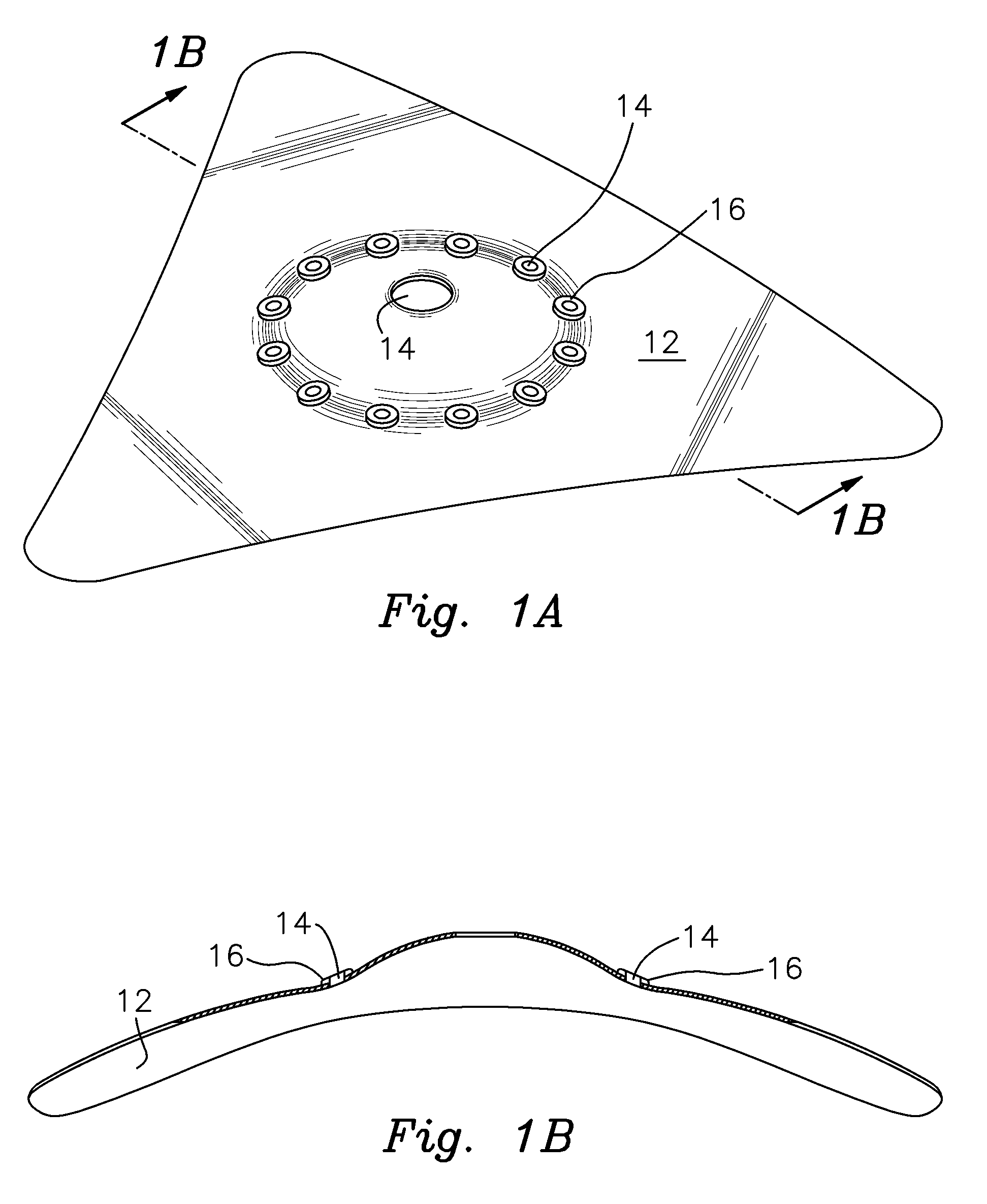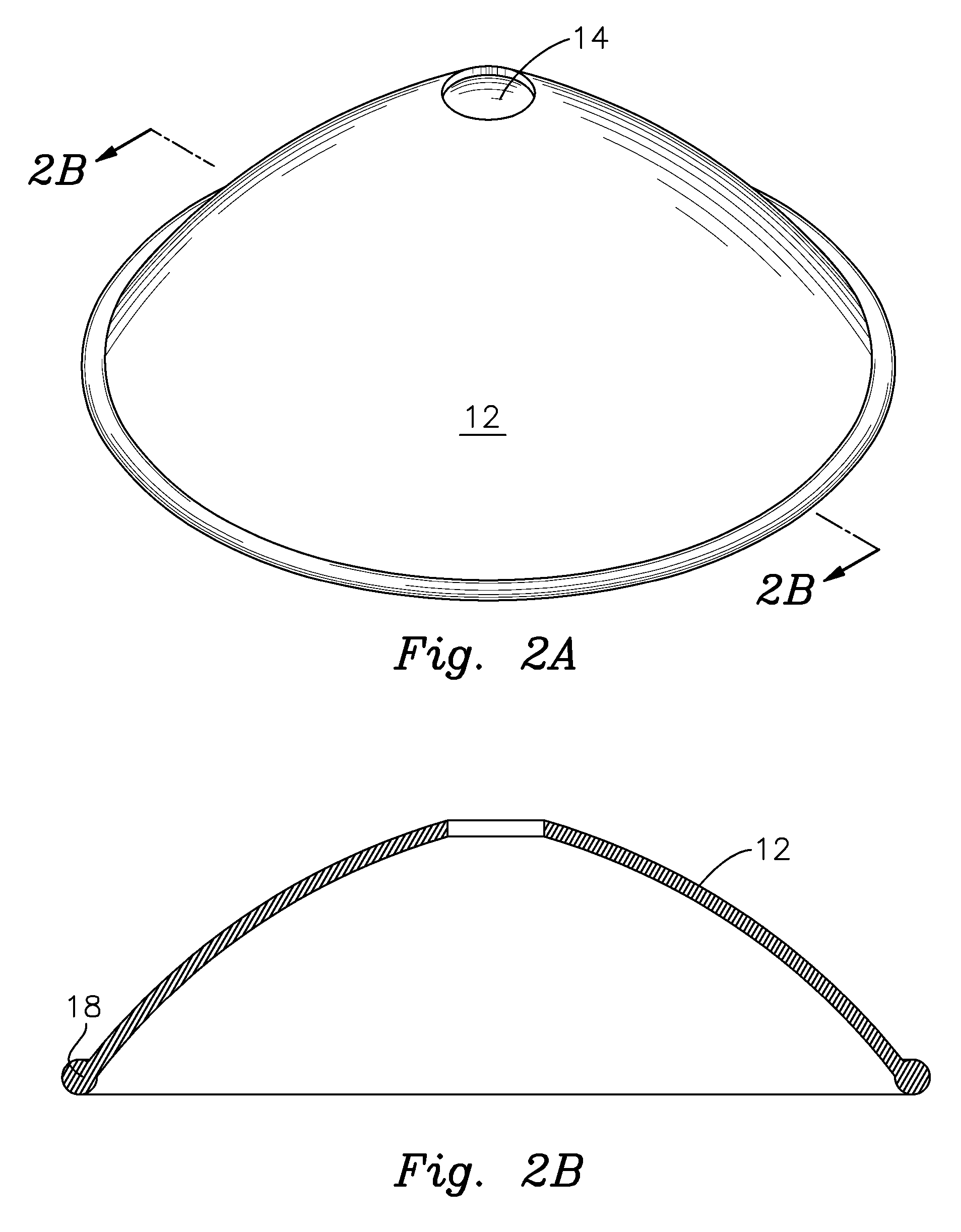Percussion instruments using molten or plasticized metal
a technology of plasticized metal and percussion instruments, applied in the field of percussion instruments, can solve the problems of more complex and otherwise unique sound, and achieve the effect of less complex overtone structure, complex overtone structure, and strong sound
- Summary
- Abstract
- Description
- Claims
- Application Information
AI Technical Summary
Benefits of technology
Problems solved by technology
Method used
Image
Examples
Embodiment Construction
[0098]Referring to the drawings:
[0099]FIGS. 1A and 1B depict a cymbal 12 having one or more holes 14 at desired locations with a thicker section 16 of metal around an edge of said one or more holes 14, wherein said one or more holes 14 are created by a melting or use of friction drilling of an existing metal section at respective locations where said one or more holes 14 are desired, resulting in the thicker section 16 of metal around the edge of said one or more holes 14.
[0100]FIGS. 2A and 2B depict a cymbal 12 having a thicker metal section 18 around said cymbal edge, wherein said formed thickened metal edge 18 is formed by a melting process to a desired edge of said cymbal and said melting process minimizes the creation of scrap material by leaving the thicker metal section 18. Where a cymbal is also a percussion instrument that can be made from thin sheet material, this embodiment also applies to thin sheet percussion instruments.
[0101]FIGS. 3A and 3B are representative of a con...
PUM
| Property | Measurement | Unit |
|---|---|---|
| thick | aaaaa | aaaaa |
| diameter | aaaaa | aaaaa |
| thick | aaaaa | aaaaa |
Abstract
Description
Claims
Application Information
 Login to View More
Login to View More - R&D
- Intellectual Property
- Life Sciences
- Materials
- Tech Scout
- Unparalleled Data Quality
- Higher Quality Content
- 60% Fewer Hallucinations
Browse by: Latest US Patents, China's latest patents, Technical Efficacy Thesaurus, Application Domain, Technology Topic, Popular Technical Reports.
© 2025 PatSnap. All rights reserved.Legal|Privacy policy|Modern Slavery Act Transparency Statement|Sitemap|About US| Contact US: help@patsnap.com



